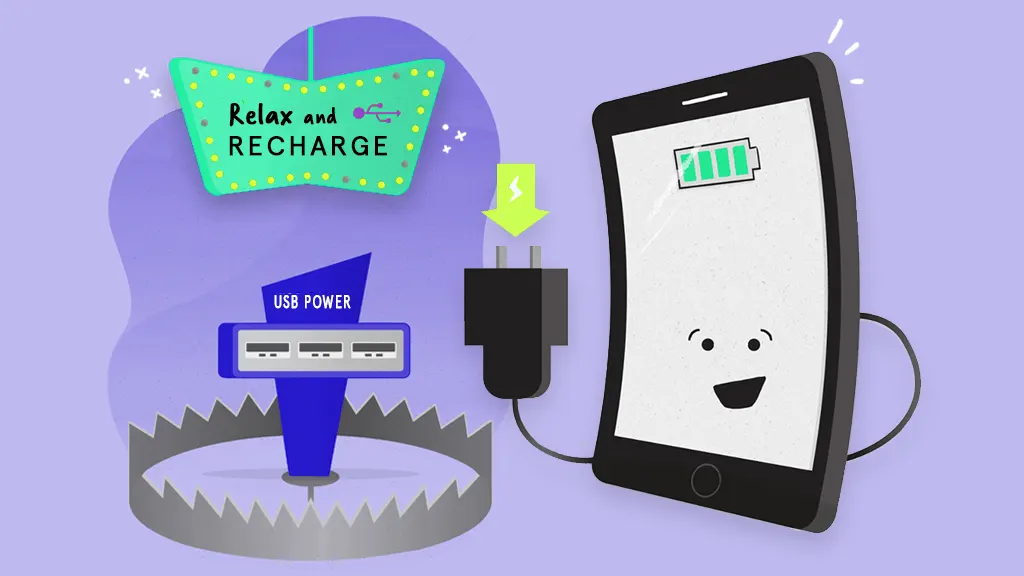What's juice jacking and how can you avoid it?
This scam may be coming to a gym or hotel near you. Here’s how to keep your personal and financial information safe.

You're rushing through the airport and your phone's almost dead. You find a USB port in the terminal and charge your device before your flight. Seems perfectly fine, right?
Not so much. You may have fallen for a new scam called juice jacking, also commonly referred to as USB jacking. But don't worry. There are some easy ways to keep your personal and financial information safe.
At Asurion, we take care of you—and your favorite tech. Here's everything you need to know about juice jacking including how to protect your data from it.
How does juice jacking work exactly?
Here's a common example of juice jacking: A scammer secretly installs hardware into a public USB port, which can be found in airports, hotels, or gyms. Nothing appears out of the ordinary, but when you're charging your mobile phone, the hidden hardware steals your personal and financial info, like bank statements or credit card numbers. The port might also infect your device with malware, making it unusable.
Juice jackers can even load malicious software onto USB cables and leave them at public charging stations or give them away as promotional items. So when you're powering up, the cord is putting a virus on your phone, tablet, or laptop.
Is there a threat of juice jacking on iPhone and Android devices?
The juice jacking scam doesn't discriminate by brand. Though most connected devices, like the iPhone, iPad and Androids all have safeguarding measures built into their operating systems (such as the “Trust This Computer?” prompt that appears on your iPhone screen when it detects you've plugged into a new device), none of them are foolproof.
While phones are most likely to fall victim to juice jacking simply because they're frequently used and more often in need of charging while out and about, they're not the only potential targets. Basically anything that charges via USB is vulnerable, including your tablet, smart watch and laptop.

Don’t waste time scrolling
Life is short. Ask our experts and get answers now.
How to prevent being a victim of juice jacking
There are a few easy ways to avoid juice jacking attacks when using USB charging ports found in public areas, like the airport, gyms and hotels:
- Use power outlets to charge your devices—not just the USB cord. No data can be transferred this way. A portable charger or power bank is also safe.
- Only use cords that came with your device or that you bought from a trusted vendor.
- If you need to charge your phone through a USB connection, invest in a device like the PortaPow® USB Data Blocker. It keeps data from being transmitted through the USB cord, effectively keeping juice jackers from stealing your information.
Tried these steps and still need help? We got you. Get your tech problem solved when you call or chat with an expert now.
- SHARE THIS ARTICLE